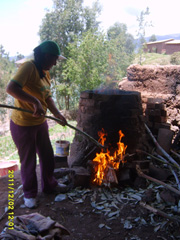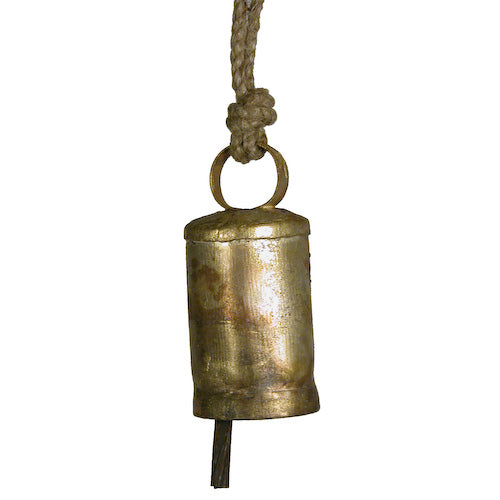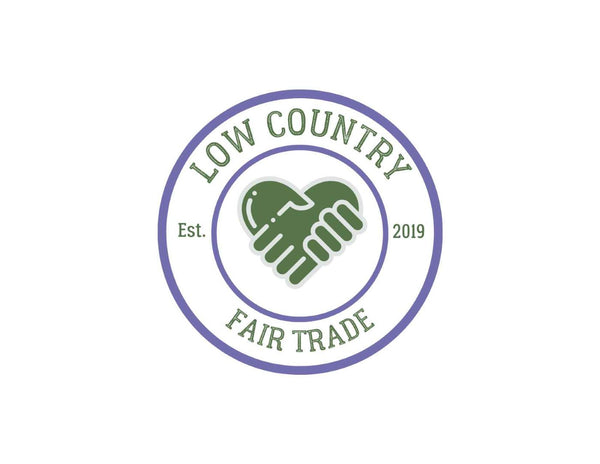OWP
Small Handmade Cylindrical Metal Bell
Small Handmade Cylindrical Metal Bell
Couldn't load pickup availability
musical instrument and decorative accent rolled into one, this cylindrical-shaped bell has been handmade using recycled scrap metals by the artisans at Noah's Ark-sponsored workshop in Moradabad, India.
- Measures 2-1/4" high with a 1-1/2" diameter
Handmade in India and fair trade imported.
Hailing from the Western Indian towns of Kutch and Gujarat, these metal bells were traditionally made for cattle, with different sizes and tones to help herders identify their animals. The artisans, descendants of the Lohar caste which originated in Pakistan, have been making bells for as far back as they can trace their ancestry. These days, bells are made using iron scraps salvaged from junk yards, then hand-pressed into a variety of shapes and sizes, just as they have been for the past 1,000 years.
After achieving their shape, the bells are covered with powdered copper and mud paste and then baked in a furnace for a rustic finish. The entire process generates a minimal amount of waste, just small traces of metal scrap and burnt mud, and because they’re not welded, a very small amount of energy.
Please read our extended description below by clicking on "About the Artisans" for more information on how this beautiful jewelry is made, and for more information on the artists who make them.
Share
About the Artisans
About the Artisans
Ceramica Quinua, an artisan cooperative known for its social and environmental responsibility, offers steady work to six workshops and 36 families in Ayachucho, Peru. Ceramica Quinua is dedicated to decreasing the use of firewood to reduce deforestation, and as such, works primarily with clay, which is extracted from the land in a controlled manner to avoid erosion.
The artisans shape and fire their pieces in home-based workshops during their nine-hour workday. Children often sit in on the workshops during their free time in so they may learn the trade that's been passed from ancestor to ancestor. The organization also takes pride in offering health care for its craftsmen, and for sharing its environmental knowledge and conservation techniques with students at public schools.
The Quinua district is characterized by the eucalyptus and alder-scented atmosphere of its mountain and forest landscapes. The name Quinua is derived from the Qenwal plant, said to be comparable in beauty only to the Quinuin women. The unique flora and fauna that inhabit the territory are fast becoming a major tourist attraction. Unfortunately, deforestation and pollution from paint chemicals are threatening their existence.



